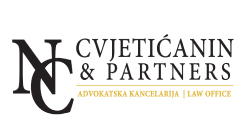The annoying length of the construction permitting process in the Czech Republic became a notoriety. Thanks to this, the prices of new dwelling premises are sky-high, and foreign investors are leaving their projects because they are unable to plan their investment – a striking example of which is the recently abandoned Microsoft project of a new data center in Prague.
Croatia: Decentralization of State Property Management in Croatia Benefiting Developers of Greenfield Real Estate Projects?
Due to various historical reasons, a large percentage of undeveloped construction land in Croatia is still owned by the state. As a result, developers of (primarily greenfield) real estate projects have often had to go through a laborious and lengthy process to acquire construction land from the Republic of Croatia. Recent legislative changes could mark a decisive shift toward decentralization and a more efficient management system, potentially streamlining processes that were previously mired in bureaucratic complexities.
Serbia: (Un)Just Changes in Land Conversion and Registration in the Cadastre
During 2023, there have been significant changes in the legal regulations in the field of planning and construction as well as in terms the Real Estate Cadastre in Serbia. In August, amendments to the Law on Planning and Construction entered into force, while in November, amendments to the Law on the Registration Procedure with the Cadastre of Real Estate and Utilities (which is now called the Law on the Registration Procedure with the Real Estate Cadastre and Infrastructure Cadastre) entered into force.
Greece: Unveiling the Roadmap in Greek Tourism Investment – Trends and Challenges
Tourism in Greece is flourishing, and with international tourism expected to reach – and exceed – pre-pandemic levels, it is no wonder that investors from all over the world are flocking to Greece.
Turkiye: The “Airbnb Law” – New Regulation on Short-Term Leases in Turkey
Ever since Booking.com’s activities had been suspended in Turkey by a court decision upon “unfair competition” claims raised by the Association of Turkish Travel Agencies (TURSAB), new regulations were anticipated in the short-term lease sector dominated by Airbnb, as unregistered and untaxed rental income obtained from short-term rentals has been a matter of discussion for a long time.
Albania: Examining Albania’s Real Estate Landscape – A Legal Perspective
Albania’s real estate market has undergone a significant transformation in the last decade, attracting global attention across the residential, commercial, and tourism sectors. This surge in interest is a result of the country’s economic and legislative reforms, political stability, successful justice reform implementation, and progress in the EU accession process. These factors collectively present investors with promising opportunities in Albania’s dynamic and evolving market.
Hungary: New Land Registration Procedure
Based on our experience and feedback from our clients, Hungary’s real estate law has already provided a very favorable legal environment for secure real estate investments. In the integrated land registration system, introduced in 1971, based on a cadastral map, real estate transactions are administered by one single decentralized organization comprising 20 regional and 119 district land offices.
Ukraine: Build Back Better According to International Standards
On January 19, 2024, the International Federation of Consulting Engineers (FIDIC) entered into a strategic partnership with Ukraine’s Ministry for Communities, Territories, and Infrastructure Development. The deal aims to create National Particular Conditions for using FIDIC contracts in Ukraine. This is promising news for professionals familiar with drafting such contracts for Ukrainian construction projects. But can FIDIC forms be used in Ukraine while this initiative is in progress, and what challenges do professionals face in using these contracts in the country?
The Latest Technological Advances in the Hungarian Code of Civil Procedure
The bill to amend the laws on justice was adopted by the Hungarian Parliament on 30 April 2024. The omnibus act amends a number of laws, including the Act on Notaries Public, the Act on Judicial Enforcement, the Act on the Organization and Administration of the Courts and the Code of Civil Procedure.
New NBU’s Steps for Currency Control Liberalisation
On 4 May 2024, new amendments to Regulation of the Board of the National Bank of Ukraine “On the Operation of the Banking System during the Period of Martial Law” No. 18, dated 24 February 2022, came into effect. Such amendments aim to further ease relevant currency control restrictions, including (i) lifting all currency restrictions on imports of works and services, (ii) permitting businesses to repatriate “new” dividends, (iii) easing restrictions on repayment of “new” foreign loans, (iv) allowing payment of interest on “old” foreign loans, and (v) allowing to transfer funds abroad under leasing/rental agreements.
Selected Aspects of the Planned Amendment to the Rules of Administrative Procedure
The amendment to the Code of Administrative Justice, slated to take effect on 1 January 2025, will bring many changes.
Shareholders’ Right to Derivative Action Under the Companies Act of the Republic of Serbia
The Companies Act of the Republic of Serbia (“Off. Herald of RS”, Nos. 36/2011, 99/2011, 83/2014 - other law, 5/2015, 44/2018, 95/2018, 91/2019 and 109/2021; hereinafter: “the Law”) prescribes a circle of persons who have certain special duties towards the company:
Key Economic Sectors for PPP Projects in Ukraine
The post-war reconstruction of Ukraine is an immense challenge that necessitates mobilization of substantial resources. During a United Nations Security Council meeting in November of the previous year, the approximate cost of the country's reconstruction and rehabilitation was estimated at $400 billion. Acknowledging the impossibility of covering such expenses solely through state funds and international aid, Ukraine is placing emphasis on enhancing collaboration with the private sector. Among the various forms and mechanisms for securing resources required for rebuilding of the destroyed infrastructure, public-private partnership (PPP) stands out as one of the most widely debated.
Czech Legal News
We bring you a brief overview of important legislative news from the Czech Republic that should not escape your attention.
Competition Safeguarding in Serbia’s Market: A Designed Approach
The Commission for Protection of Competition (“CPC”) and the Republic Secretariat for Public Policy (RSPP), in cooperation with the Organization for Economic Cooperation and Development (OECD), enacted a while back a Control List for Assessing the Impact of Regulations on Competition (“Control List”), which establishes whether a specific proposal or draft regulation could lead to competition distortion in the market.
Changes to the Military Medical Examination in the Armed Forces of Ukraine
On 27 April 2024, the Ministry of Defence of Ukraine adopted Order No.262 (the ''Order'') which amended Order No.402 ''Regulations on Military Medical Expertise in the Armed Forces of Ukraine'' dated 14 August 2008.
Changes to Agency Employment in 2024
In 2024, the conditions for obtaining an employment agency permit will be further tightened.
Employment Brief: Clarification of guidelines on Whistleblowing Officers in Slovakia
The requirements for the Whistleblowing Officer’s (WO) role are covered by various guidelines that have been published by the Slovak Office for Protection of Whistleblowers over the past several months. The multitude of information sources now requires clarification, as the role of the WO leading internal investigations of reports is becoming increasingly prominent.
































